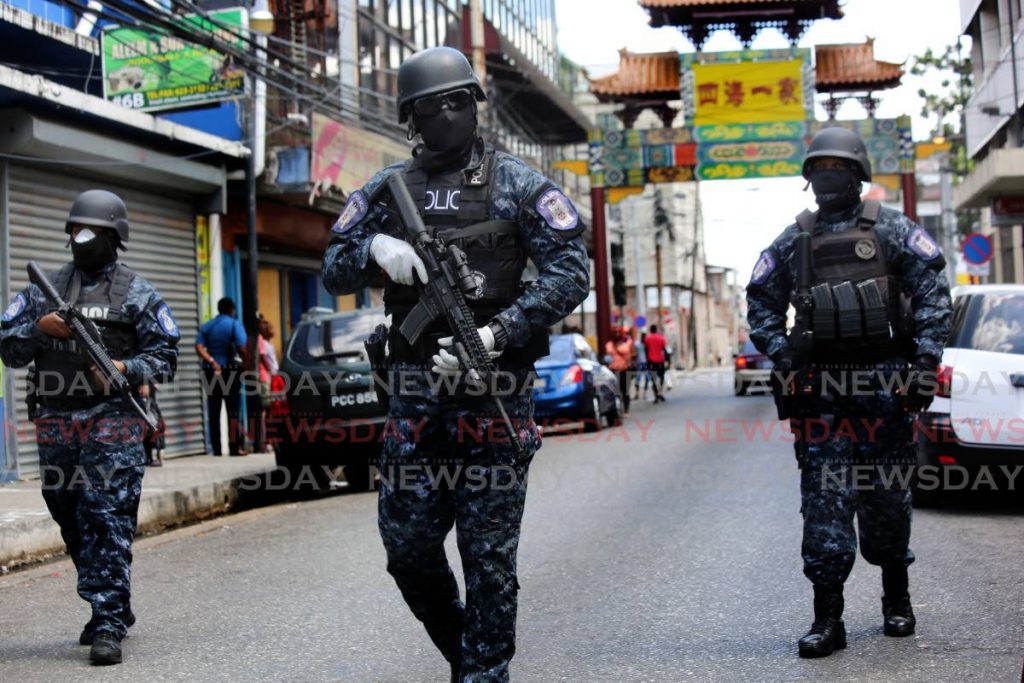SRP sues over police tattoo policy

A special reserve police (SRP) officer who had a tattoo removed because he was told that would make him eligible for recruitment is challenging the police service’s policy on body art.
Michael Marcano received the permission of Justice Margaret Mohammed to seek declarations that the police’s body art policy, contained in a July 2020 departmental order, was illegal and unconstitutional.
The policy precludes TTPS members from having tattoos on their head, face, neck, ears, scalp, or hand that would be visible when they are in uniform.
While officers are allowed to have tattoos on hidden parts of their bodies, tattoos that a “reasonable person would conclude are prejudicial to good order, discipline and morale or are of a nature to bring discredit upon the TTPS” are prohibited.
Marcano also wants the court to declare that he is not disqualified for recruitment because of the now-removed tattoo on his right shoulder.
He has also filed a constitutional motion alleging his rights to liberty, equality before the law, equality of treatment from a public authority and freedom of expression were breached. Marcano has 14 days to file his claim for judicial review and the matter will come up for virtual hearing again on April 20.
In December, another SRP, who was repeatedly denied an opportunity to join the police because of a tattoo on his arm filed a similar complaint.
Marcano has been an SRP since July 2013 and has been with the Guard and Emergency Branch since September of that year. He said he has been able to carry out his duties without objection even after disclosing to his superiors that he had a tattoo on his upper right shoulder.
He said he tried several times to join the police, the first in 2014, when he successfully sat the entrance exam and advanced to the medical review stage, but was denied permission to progress further because of the tattoo.
His claim says he objected and referred to several police officers with tattoos, some of which were visible.
He reapplied in 2015, 2016 and 2017 but was told he couldn’t enter the Police Academy because of the tattoo.
He said his tattoo was not visible when he wore his normal dress shirt, but was advised to remove it. He was referred to a tattoo business which removed body art for prospective police applicants and did so. As instructed, he got a letter saying the tattoo had been removed.
He once again applied for recruitment and presented the letter but was told because the removal left a mark on his skin, he was still not eligible to join.
He is complaining that the policy ban is too wide to be proportionate even if its purpose is to maintain a professional image of the service.
The tattoo he removed was a portrait of his late father, which he got at 19, and was of sentimental value to him.
He said there was no justified reason why his tattoo would have prevented his appointment, since it was not visible beyond the fastened collar or the sleeve of his shirt.
His lawsuit says, “Tattoos have become mainstream in today's society for the current generation and hence the policy amounts to an unjustified, arbitrary and discriminatory exclusion of a large percentage of potential applicants who wish to serve their country as members of the police service.
“There are in fact police officers in the TTPS with visible tattoos on various parts of their body who have all performed exceptionally well without affecting the credibility and professional image of the service.”
Marcano is represented by attorneys Anand Ramlogan,SC, Renuka Rambhajan, Jayanti Lutchmedial, Alvin Pariagsingh and Alana Rambaran.

Comments
"SRP sues over police tattoo policy"